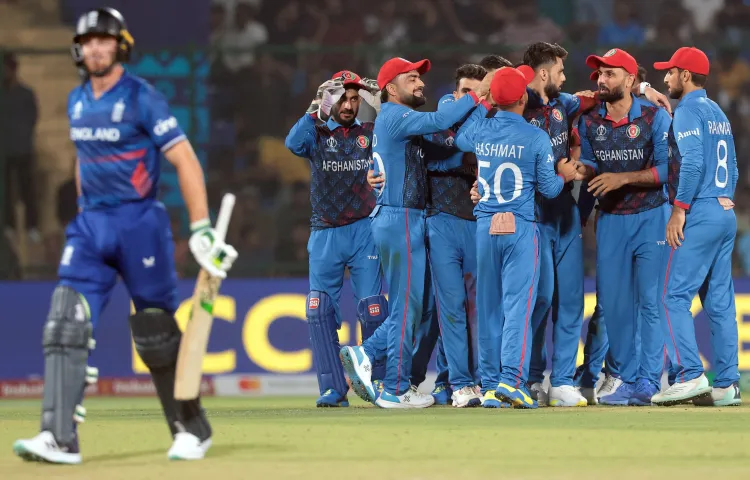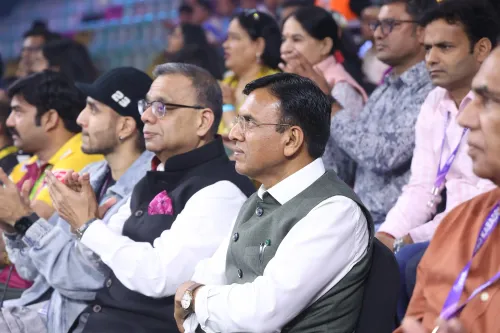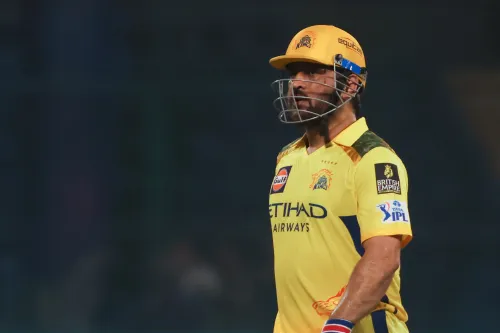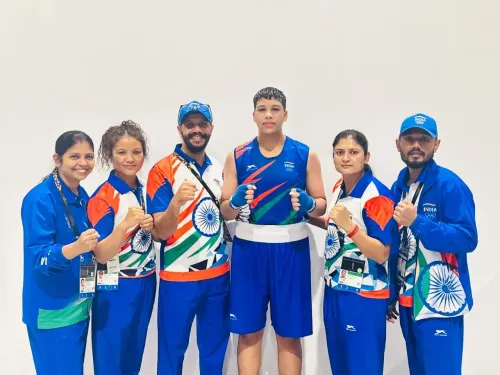Champions Trophy: ECB Confirms England's Match Against Afghanistan Amid Boycott Demands

Synopsis
Key Takeaways
- ECB confirms England will play against Afghanistan.
- Increasing calls for a boycott due to women's rights issues.
- ECB advocates for international collaboration over unilateral actions.
- Support for displaced Afghan female cricketers is ongoing.
- Global Refugee Cricket Fund receives ECB's support.
London, Feb 6 (NationPress) The England and Wales Cricket Board (ECB) has officially announced that the men's cricket team of England will participate in their scheduled ICC Men’s Champions Trophy 2025 match against Afghanistan, set for February 26 in Lahore. This decision comes despite increasing calls for a boycott stemming from the severe suppression of women's rights in Afghanistan under the Taliban regime.
ECB Chair Richard Thompson acknowledged the widespread apprehensions regarding gender discrimination in Afghanistan, highlighting the necessity for a collaborative international response instead of isolated actions.
Various groups, including human rights advocates and policymakers, have escalated their calls for England to oppose Afghanistan's participation in the Champions Trophy by abstaining from their scheduled match.
The concerns are rooted in the Taliban’s prohibition of women’s cricket and comprehensive restrictions on women's rights, which the ECB has characterized as gender apartheid.
However, following thorough discussions, the ECB Board concluded that boycotting the game would not effectively address the issue. The board holds the belief that a united international effort from the cricket community would yield a more significant impact.
"We maintain that a coordinated international response from the cricketing community represents the best path forward and will accomplish more than any isolated action by the ECB in boycotting this match," Thompson remarked.
He further emphasized that for many Afghan citizens, witnessing their cricket team play remains one of the few remaining sources of happiness, underscoring the situation's complexity.
In affirming England's involvement in the match, the ECB reiterated its commitment to assisting female Afghan cricketers displaced due to the Taliban’s policies.
Recently, the ECB contributed £100,000 to the Global Refugee Cricket Fund, a collaborative initiative by the Marylebone Cricket Club (MCC) and its charitable foundation. This fund aims to support refugee cricketers globally, including those from Afghanistan who have been compelled to flee.
The ECB has also called upon the International Cricket Council (ICC) to adopt more robust measures, advocating for the allocation of dedicated funds to aid Afghan female cricketers in exile.
They have proposed recognizing an Afghanistan Women’s Refugee Team to ensure that displaced players can continue to compete internationally and create pathways for Afghan women to pursue coaching, administrative, and non-playing roles in the sport.
"The cricketing community cannot resolve all of Afghanistan’s issues," Thompson acknowledged, "but we implore our international partners to unite and show through our actions that we stand with the women and girls of Afghanistan."
Calls for England to withdraw from their match against Afghanistan intensified in early January when a cross-party letter, signed by nearly 200 UK politicians, was submitted to the ECB. The letter urged England to abstain from playing in protest against the Taliban regime’s violation of women's rights.
Labour MP Tonia Antoniazzi stressed that England’s players should leverage their influence to foster change. Meanwhile, Prime Minister Sir Keir Starmer mentioned that the government was collaborating with international partners on the issue. However, Culture Secretary Lisa Nandy later opposed a boycott, stating that such actions are counterproductive and the match should go on.
Cricket South Africa (CSA) also turned down a request from a British Member of Parliament to have their men's team boycott the match against Afghanistan in the Champions Trophy, asserting that the decision to ban Afghanistan should be made by the International Cricket Council (ICC).









